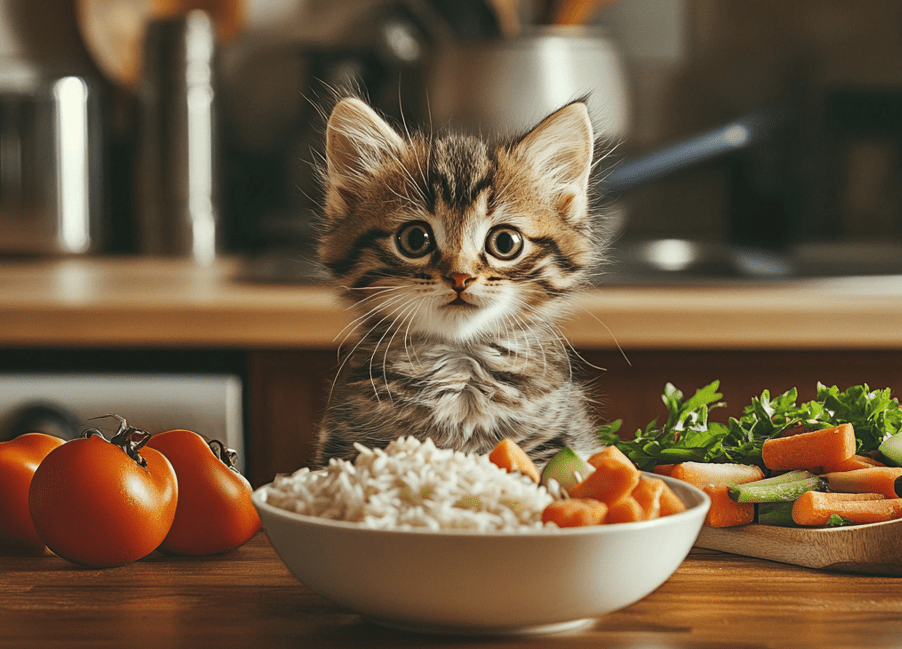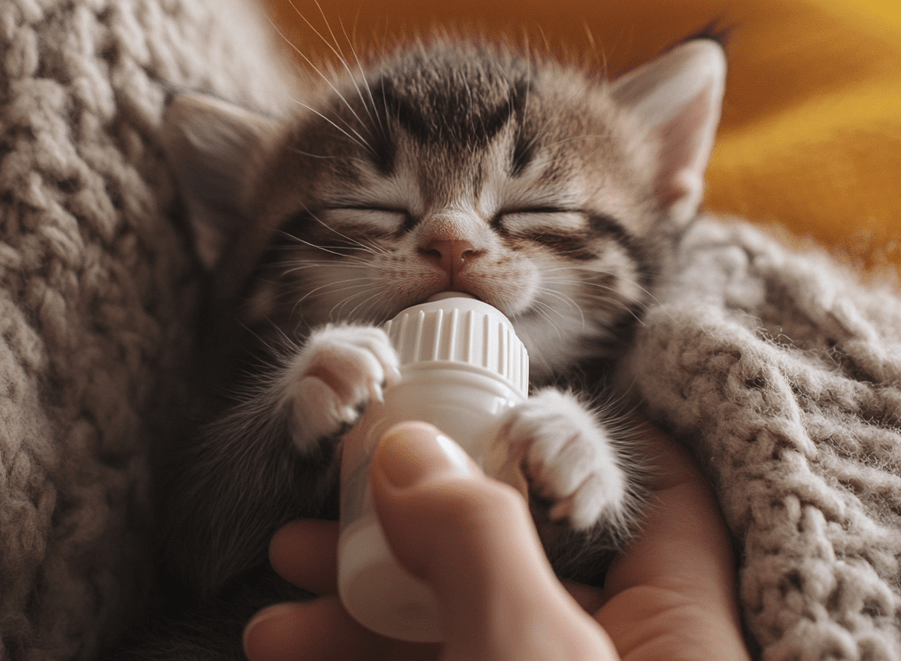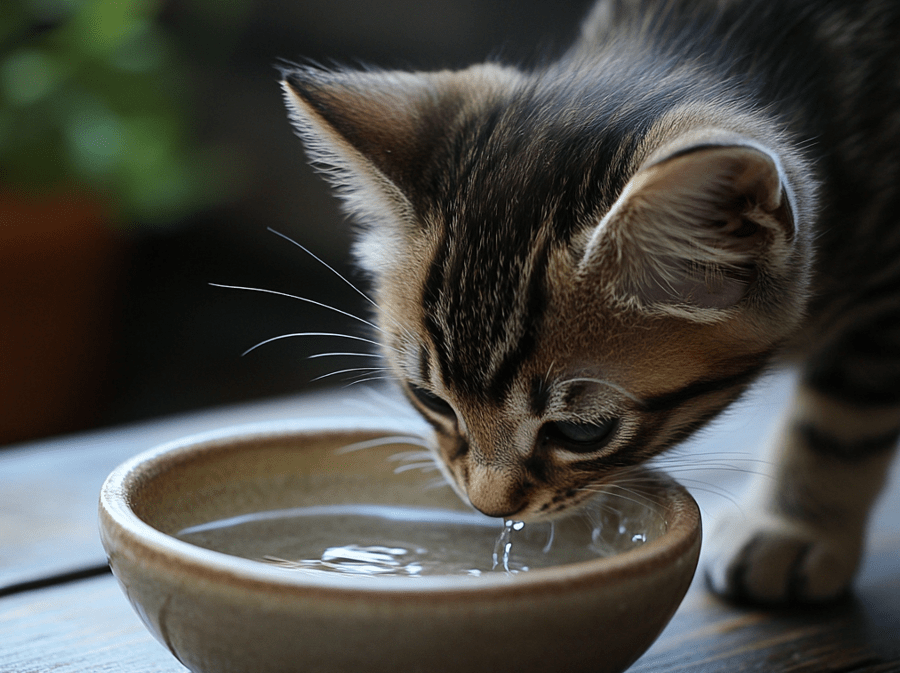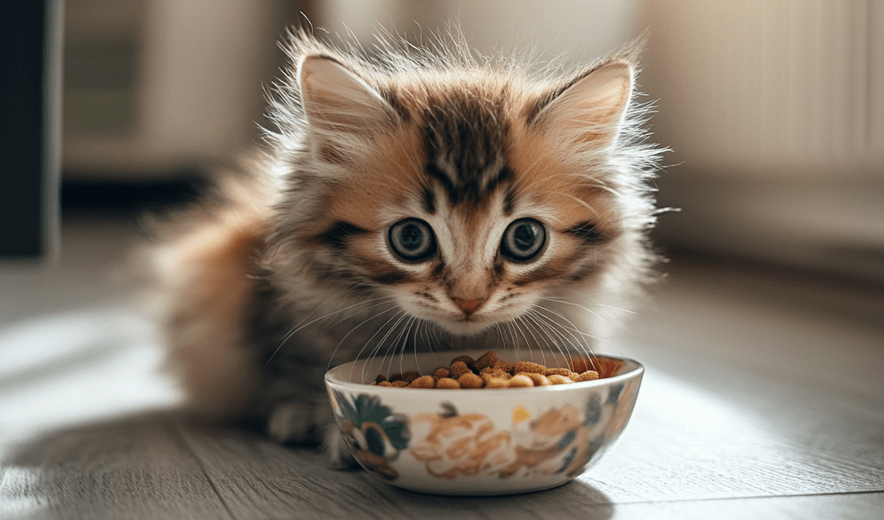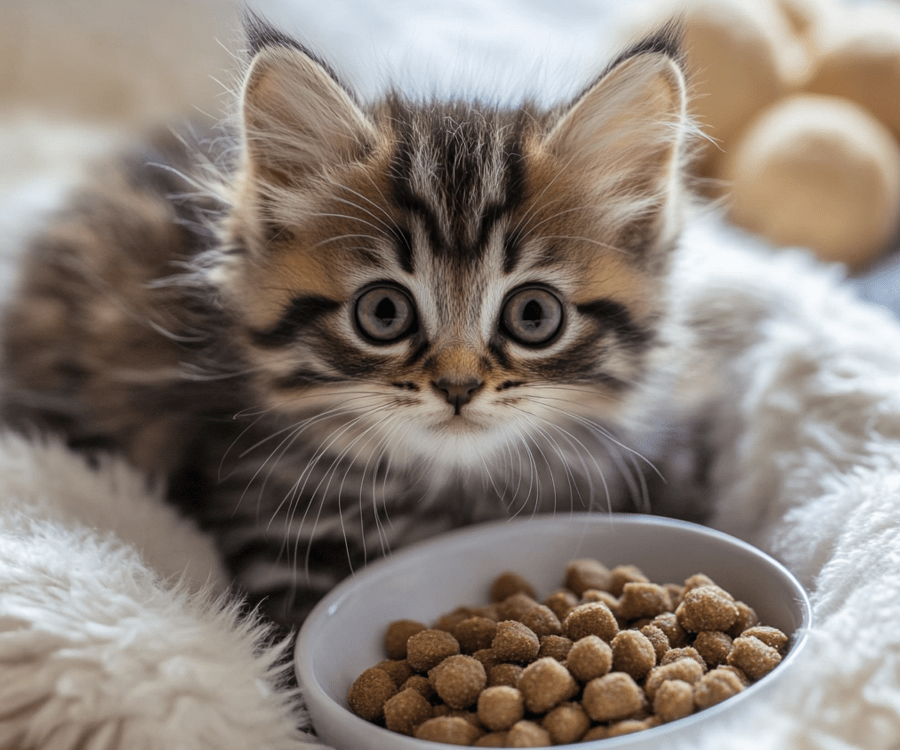
Of all the many rewards of being a pet owner, nothing is as amazing or thrilling to watch your kitten growing up happy and healthy. After all, we want to make sure they eat what is best for them too. Here, we take a look at everything you need to know about kitten growth and development — from identifying your new feline family member’s nutritional needs by age to adjusting their diet as they mature. If you are new to having a kitten, or even if you have years of experience this tutorial will help you ensure your growing kitty receives the best possible care.
Key Takeaways
Learn what nutrients can help your cat grow healthy and strong
Know the various life stages of kitten growth and how to adjust their nutrition accordingly
Learn how to choose food for your kitten and read pet food labels
Learn what signs to look for concerning kitten progress and how you can prevent issues from occurring.
The advantages of doing homemade cat food and maybe using some necessary supplements to bolster its protection.
Kitten Nutritional Requirements Explained
Kittens are not just small cats — they are rapidly developing animals with special food needs. Balanced nutrition is very important.
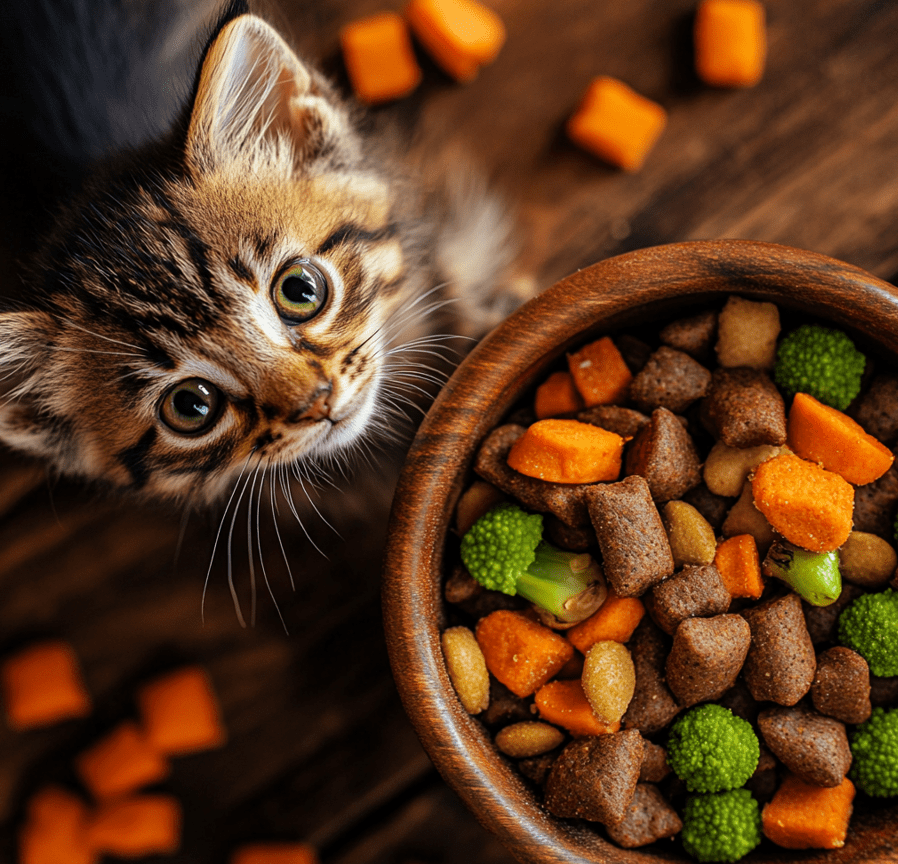
Feeding growing kittens
Kittens require a diet that contains enough good quality protein, essential fats, carbohydrates (particularly the right sorts of carbohydrate) in addition to vitamins and minerals. These all nutrients help them grow, make their bones strong and improve the function of their immune system.
Protein: Kittens need more protein than adult’s cats because they are going through a stage of rapid stress and tissue growth
Fat: Fats are critical for energy because kittens live busy lives and they facilitate quick growth.
Carbohydrates: Provides them with the necessary energy to keep playing and growing.
Vitamins & minerals: Essential for bone health, a healthy immune system & good health.
Essential nutrition’s, functions and its recommended amount:
A nutritious diet is fundamental for the health of your kitten. If they are not getting the right nutrients in their diet, your kitten may suffer from stunted growth, an increased risk of infections or become deficient for vital vitamins and minerals.
| Nutrient | Function | Recommended amount |
| Protein | Tissue repair, muscle growth | 30-45% of total calories |
| Fat | Energy, essential fatty acids | 20-30% of total calories |
| Carbohydrates | Energy Source | 20-40% of total calories |
| Vitamins and Minerals | Bone development, immune function | As per AAFCO guidelines |
Kitten life stages with recommended feeding schedules
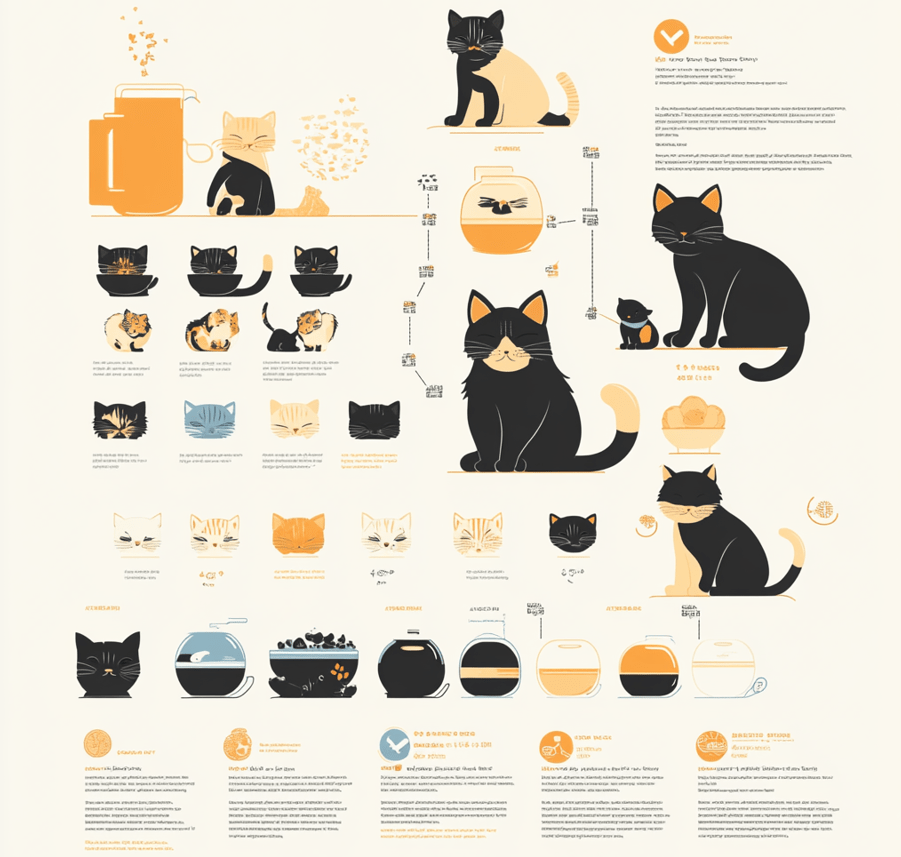
Your cat will have changing nutritional needs as it matures. It is essential to comprehend these growth stages so that the child gets requisite nurture at an appropriate juncture.
Newborn (0-4 weeks): Every 2-3 hours feeding schedule. Feed them on their mother’s milk or a good kitten formula.
Weaning (3-6 weeks): Start to introduce solid food giving them 4 value 5 small meals through the day.
Growth (2-4 months): 3-4 meals a day with wet and dry kitten food combined.
(Months 4 – 6): Your kitten’s status begins to reach toward his mature height, you can modify his feeding plan for up to two or three smaller meals in a day but this may vary depending on the breed size being fed and keep up with proper nutrition.
Adult (6 months-1 year): two meals per day, adult cat food
By monitoring your kitten’s growth and adapting its dietary needs, you are sure to have a well-nourished kitten throughout each stage.
Picking the Best Kitten Food
Get the best kitten food. The number of options in the market for canned foods can make it difficult.
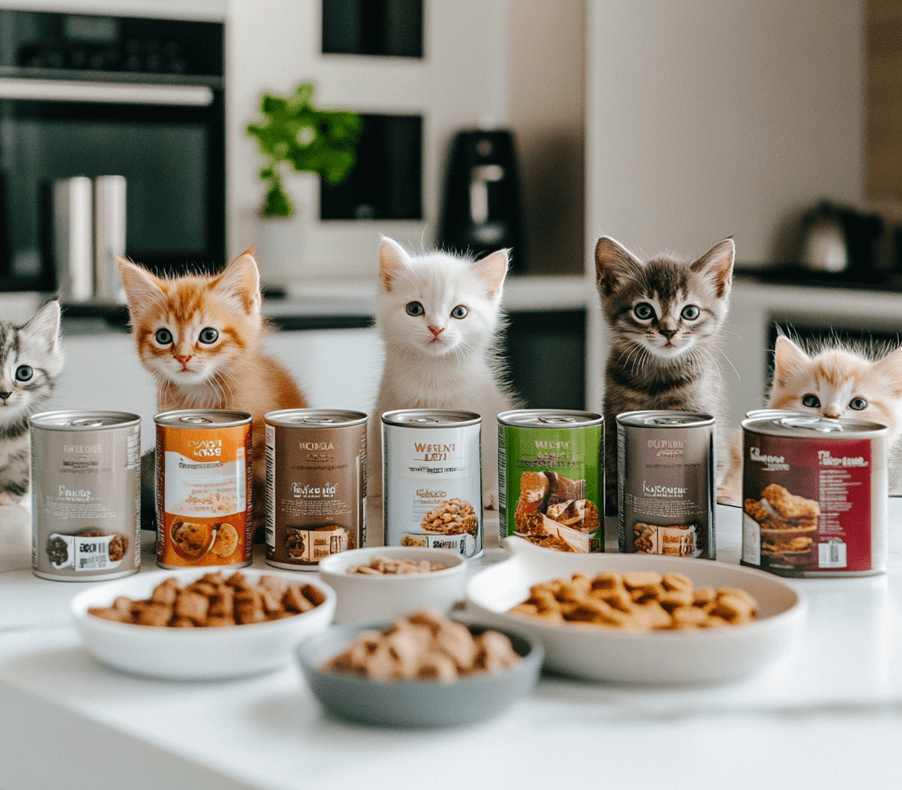
Dry vs. Wet Kitten Food
Both dry as well as wet foods are advantages for kittens. Dry food is good and affordable, but wet food can introduce more moisture and taste. You should look for a premium quality food that best suits the needs of your kitten.
Reading kitten food labels
Knowing what is in your kitten’s food is important. Seek products with whole, real ingredients as the primary sources of nutrition, and stay away from anything with fillers or artificial additives, or that are simply overloaded with sugar and salt.
| Nutrient | Recommended Amount for Kittens |
| Protein | 30-45% of the diet |
| Fat | 18-30% of the diet |
| Carbohydrates | 20-35% of the diet |
| Moisture | At least 60% for wet food |
Choosing the right diet chart will help to ensure that your kitten grows well.
Kitten Nutrition and Growth
Keeping track of your kitten’s weight will help ensure that he is growing as he should be. Feeding your kitten a balanced diet and visiting the veterinarian on regularly scheduled appointments will ensure that your kitten maintains healthy weight.
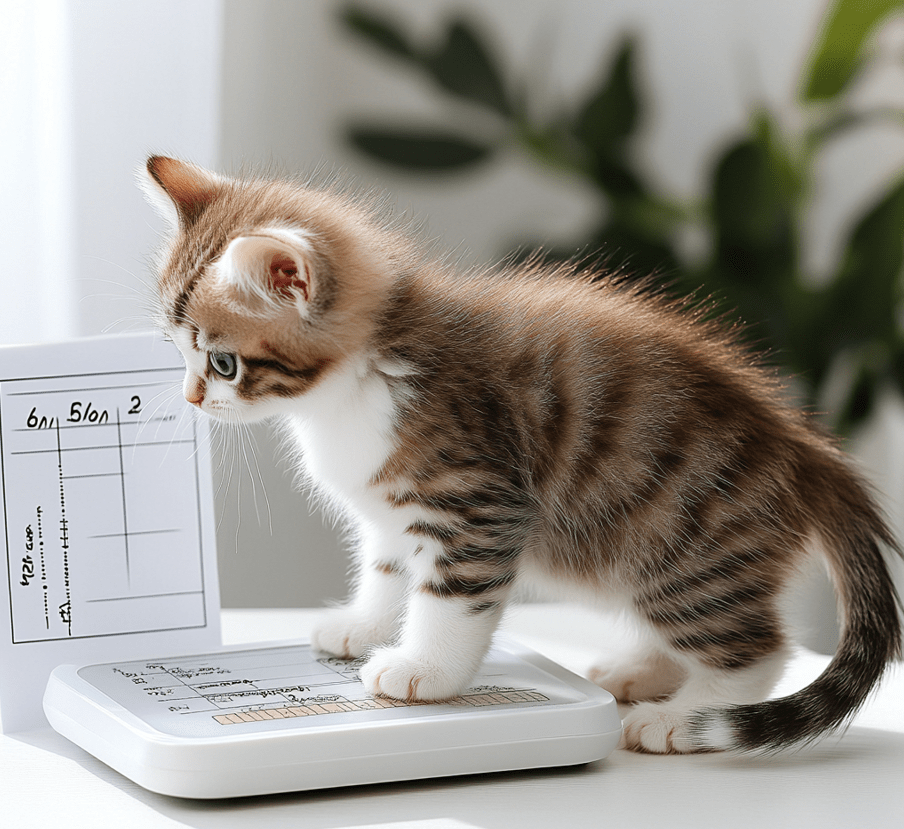
Monitoring Kitten Weight Gain
If you weigh your kitten every week, you will be able to follow their growth more carefully and quickly notice if something should not be measured correctly. From birth to 4 weeks, kittens gain on average 4 ounces per week, from 4 to 12 weeks they should put on approximately 2 ounces weekly, and by the time a kitten is from 3 to 6 months they will grow just one ounce per a week until reaching their full size.
| Kitten Age | Average Weight Gain |
| Birth to 4 weeks | 4 ounces per week |
| 4 to 12 weeks | 2 ounces per week |
| 3 to 6 months | 1 ounce per week |
| 6 to 12 months | 0.5 ounces per week, |
The rate then slowed as they got closer to adulthood.
If you notice any abnormalities in your kitten’s weight gain contact your vet to confirm that they are getting the right type of food.
How to Transition to Adult Cat Food
So as your kitten grows, you will have to change their diet and start them on adult cat food. Change needs to be slow in order to prevent potential digestive trouble.
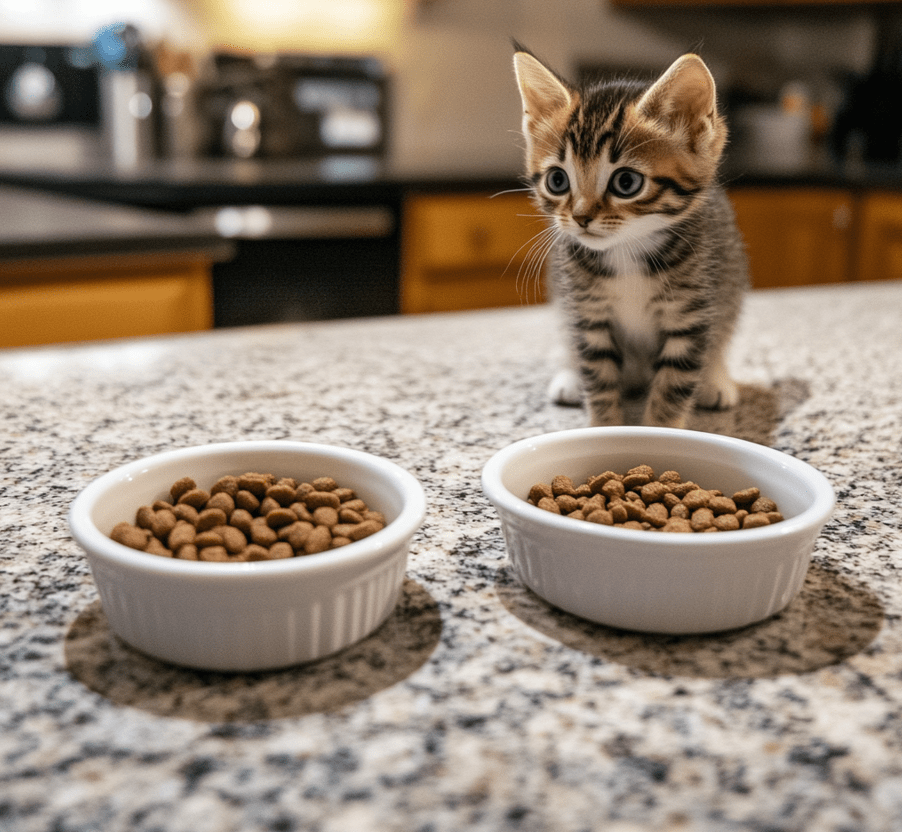
When to Make the Switch
When your kitten has grown to their full size (usually by around 12 months), growth should naturally slow down and they won’t be as interested in kitten food. Slowly transition them over 7-10 days, every day mixing in a little more of the adult food with their kitten food.
| Day 1-3 | Day 4-6 | Day 7-10 |
| 75% Kitten Food, 25% Adult Food | 50% Kitten Food, 50% Adult Food | 25% Kitten Food, 75% Adult Food |
This slow transition encourages a seamless move to adult food and is beneficial for their health in the long run.
Bad feeding practices
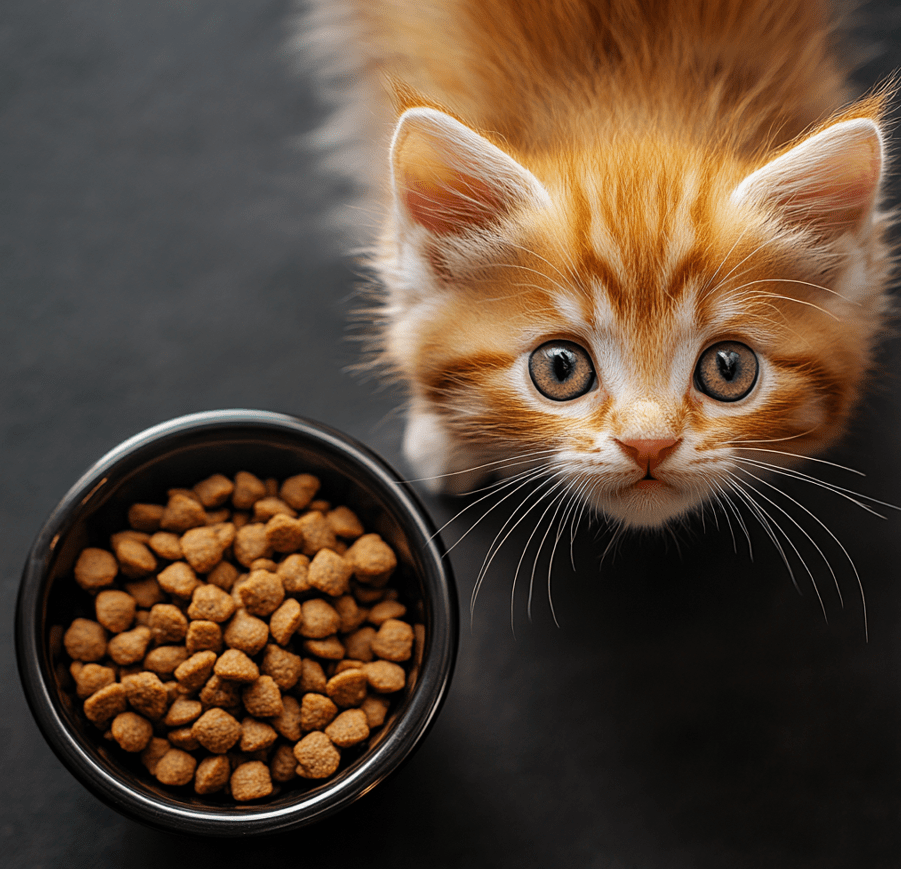
Feeding your cat might not appear to be a matter of great difficulty, but there are common mistakes you may or may not know about that could complicate things for you and your feline friend. Here, we will explore a few errors in feeding you should avoid:
Risks of Overfeeding and Underfeeding
Feeding it too much can eventually cause obesity and lead to issues with its joints and other health problems. However, if you under feed them it can stunt their growth and make their immune system weaker.
| Feeding Mistake | Potential Risks |
| Overfeeding | Obesity, joint problems, respiratory issues |
| Underfeeding | Stunted growth, malnutrition, weakened immune system |
Avoid these traps by keeping a healthy diet and schedule that suits your kitten’s requirements.
Homemade kitten food recipes

One way of doing so is by making homemade kitten food. It will leave your pet with fresh, healthy food and you with a sense of fulfillment.
That said, if you are preparing homemade diets for your kitten(s), they need to provide all the necessary nutrients such as good animal protein sources, essential vitamins and minerals, calcium-rich doses of dairy or other ingredient choices which fulfill the role of medium-quality cow milk, helpful fats and fibers obtained from fibrous vegetables and healthy fiber sources.
Healthy homemade diet for baby kitten
A decent homemade kitten food recipe should contain good quality animal based proteins, organ meats to provide vital vitamins and minerals, calcium rich foods to keep teeth and bones strong, essential fats and fibrous vegetables.
| Nutrient | Recommended Amount for Kittens |
| Protein | 30-45% of total calories |
| Fat | 20-30% of total calories |
| Carbohydrates | 20-40% of total calories |
| Calcium | 0.8-1.2% of dry matter |
| Phosphorus | 0.6-1.0% of dry matter |
Before starting any homemade diet, make sure to consult with your vet that it satisfies all nutritional needs.
Supplements for kittens
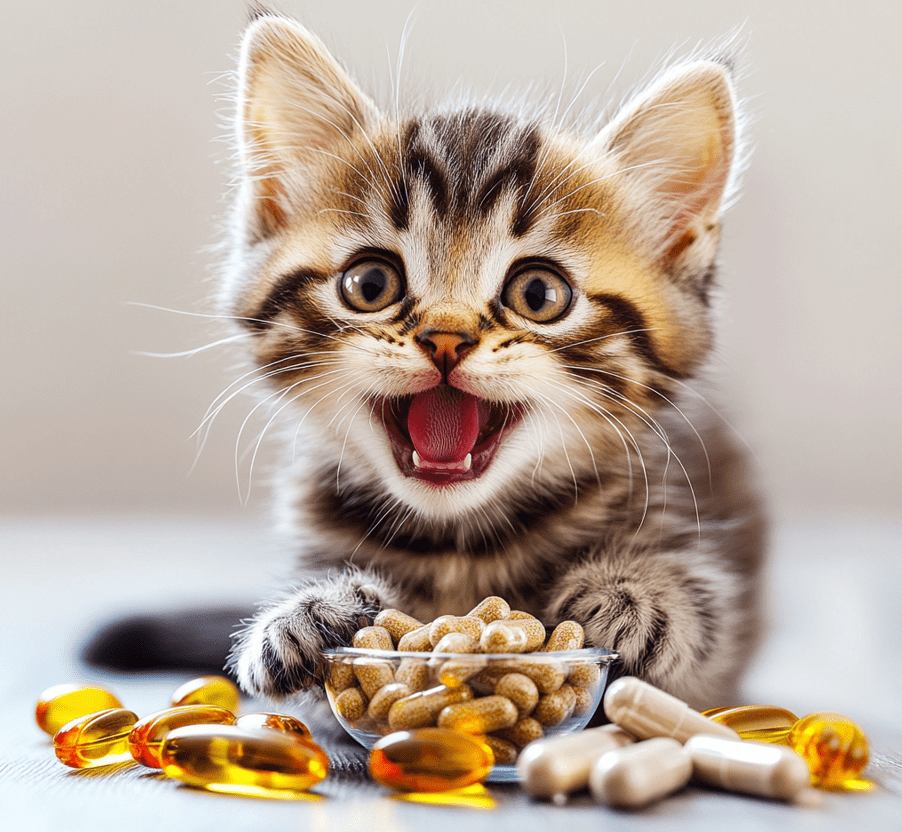
Some kittens may need to take supplements because even with a balanced diet, they might not be getting everything they need.
Common Supplements for Kids
There are several kitten supplements that can be very helpful in terms of skin health, digestion, bone health and overall immune support among others. Supplementation in general you should discuss with your vet before feeding most anything to a kitten.
Some more vital information necessary for the growth of kittens:
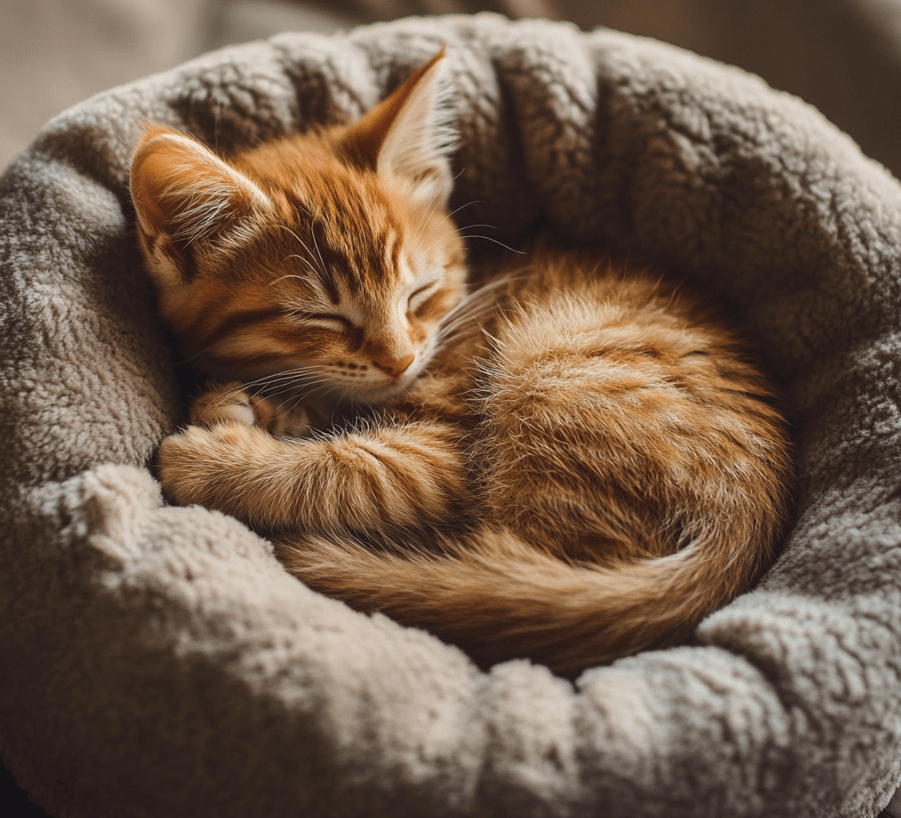
1.Kids need a lot of protein in their diets, but also the correct ratios of fats, carbs, vitamins and minerals so they can grow big and strong
2.Kittens should be fed every 3-4 hours as babies, then reduce the number of meals to a few times per day when they are teens.
3.Feed the Right Food: Start with good protein and high-quality ingredients, specifically cat or kitten food. Be sure to read the labels carefully so that you feed your pet a quality diet.
4.Put your kitten regularly on a scale and compare the growth with standard charts. Be sure to check with your vet if you have any concerns.
5.Transit them to adult cat food slowly over 12 months or when they reach their mature size.
6.Not to over or under feed. Feed on time. Always maintain a feeding schedule, and observe portion sizes according to the age and size of your kitten.
7.Make sure to see your vet first to make certain you are meeting all their nutritional needs and also safe for them.

